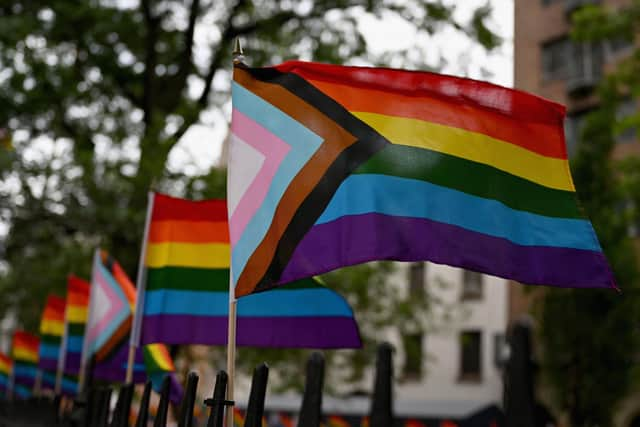Trans people want everyone to have the freedom to be themselves - Vic Valentine
In several of the Committee’s sessions, there have been conversations around what it means to ‘live as a man’ or ‘live as a woman’. It is a requirement of the current law, and would continue to be if the Bill at Holyrood passes, that a trans man or woman be living permanently in their gender before they
can apply to change their birth certificate.
Some people have suggested it is impossible to explain what it means to ‘live as a man’ or ‘live as a woman’, without coming up with outdated and sexist ideas about what men and women’s lives should look like. In lots of ways, I agree. I think most sensible people would say that your haircut, the
Advertisement
Hide AdAdvertisement
Hide Adclothes you wear, your interests or your job have nothing to do with it.
But for trans people like me, things are a little more complicated. What it means to be trans is to feel like your sense of your gender doesn’t at all fit with what people expected based on the body you were born with. For lots of us, we can struggle for a long time to try and put our finger on what it is that doesn’t feel right. But often, once we figure it out, it can feel like everything falls into place.
Figuring it out is just the starting point. Once we have, we then start taking steps to live in a way that means how other people see us, and how we move through the world, better matches up with who we know we are. For lots of us, this will mean changing our names. We’ll tell our friends,


families and colleagues that we see ourselves as a man, a woman, or a non-binary person and ask, if they can, that they see us this way too. We update things like our passports and driver’s licences so these reflect who we know we are. Some of us will choose to access medical treatments like
hormones, to make our bodies feel more like places we can call home.
If we didn’t take these steps, our loved ones and the wider world would have no way of knowing that we don’t see ourselves as that ‘M’ or ‘F’ first put on our birth certificate. Instead they would assume that we were happy being seen that way - as almost everyone is.
So it is these things we mean when we talk about ‘living as’ a man or a woman. We know that gender, and who you are, is not all about stereotypes that everyone would better off without. Not about what you look like, or who others expect you should be. Many trans people know this more
keenly than most. To be trans is pretty much to defy people’s expectations. Far from wanting more rules about how men or women should live, we want everyone to have the freedom to truly be themselves.
-Vic Valentine is manager of Scottish Trans
Comments
Want to join the conversation? Please or to comment on this article.
